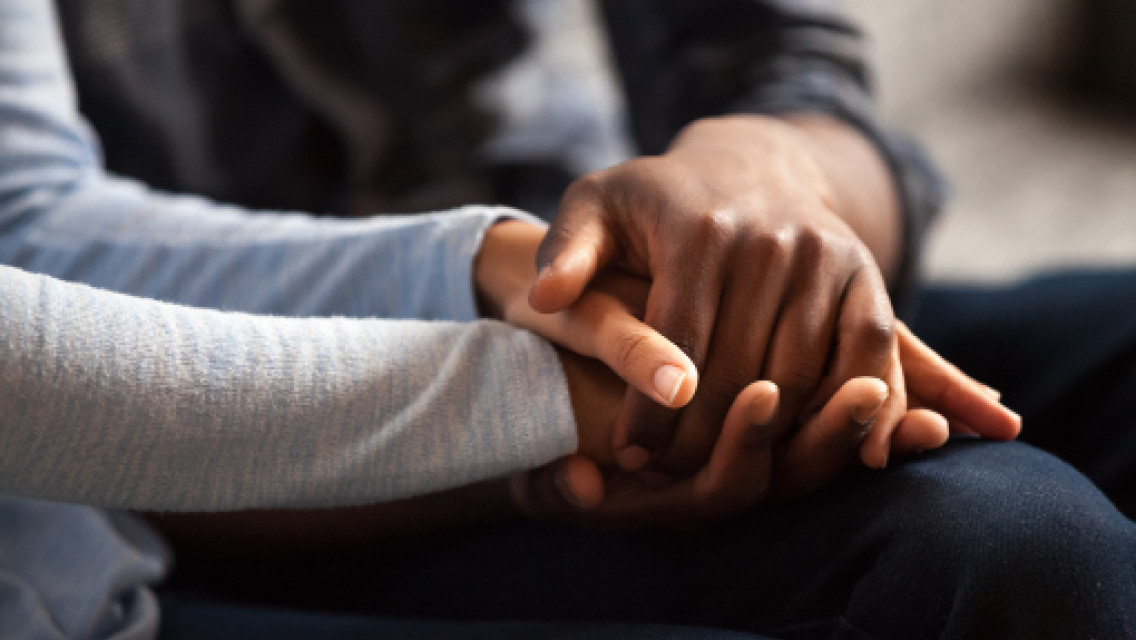It’s natural to want to help a loved one, friend or colleague who is going through a rough time. But feeling responsible for someone else’s feelings can also wear on you. And trying to cheer another person up before he or she is ready — particularly if he or she is grieving or clinically depressed — can backfire, leaving you both feeling miserable.
Valerie Whiffen, PhD, a psychologist in Vancouver, B.C., who specializes in the association between depression and relationships and is the author of A Secret Sadness: The Hidden Relationship Patterns That Make Women Depressed, says that helping a depressed or “down” person requires some counterintuitive intelligence. “Trying to suggest solutions or lighten another person’s mood may come off as condescending or dismissive,” she says. “That can trigger more feelings of sadness or frustration. And that may make things harder on you, too.” Instead, she advises, keep in mind that this is not your problem to solve. To that end, consider the suggestions below.
Stress Source: Struggling to support or interact with a depressed friend or loved one without sinking into his or her dark emotional waters.
Barriers
- The urge to analyze. Even if it seems like the down person is grasping for answers, says Whiffen, it’s best not to play amateur psychologist. “Offering a pat analysis like, ‘This is all about your relationship with your parents,’ can make the person feel denigrated.”
- Anger. “It’s natural to feel frustrated with a depressed person,” says Whiffen, particularly if his or her low mood or impaired function impinges on your life. But being angry will only wear on you, she says, and may also “promote a vicious cycle in which the depressed person feels unloved, irritates his [or her] loved ones, and then feels more unloved when the loved one snaps back.”
- The impulse to suggest solutions. Under normal conditions, helping a friend to look on the bright side can be helpful. Yet, Whiffen points out that when people are seriously downtrodden, any “cheering up” efforts are likely to get lost in translation. Suggestions you intend to be helpful (that they should exercise, get a hobby, etc.) are more likely to be heard as judgment and criticism.
- Disengagement. “Depressed moods are contagious, and it can be tempting to insulate yourself by disengaging emotionally,” Whiffen explains. Setting healthy boundaries is important, but attempting to “shut out” anyone whom you care about, or with whom you must regularly interact, is unlikely to be helpful. Instead, commit to taking care of yourself while also treating the other person with as much care and respect as you can muster.
How to Cope
- Just listen, with empathy. “Depressed people want to feel that they are not alone and that they are being listened to,” says Whiffen. “Trying to put yourself in their shoes and responding from that viewpoint — ‘Wow, this sounds really tough for you, you must feel lonely’ — helps them more than a thousand suggestions for self-improvement, and it is much easier on you, too.”
- Respect the depressed person’s autonomy. There’s nothing wrong with inviting depressed people to do things with you, says Whiffen, as long as you respect their right to say no. “One good way to extend an invitation might be, ‘I’m going out for a cup of tea. Would you like to come along?’ That’s an offer that conveys caring. But if the depressed person says that she doesn’t feel up to it, respect that. Show that you don’t expect her to pretend to feel good if she doesn’t.”
- Lead a normal life. It’s easy to get enmeshed with a down person and, in trying to “be there,” disrupt your own life significantly. It’s important, though, that you balance the time you spend empathizing with a firm commitment to maintaining your own life and routines.
- Get nonjudgmental support for yourself. It’s helpful, says Whiffen, to call upon a friend who will listen to you and understand your own needs and frustrations, without judging the depressed person.
Learn More
Looking to enhance the mental health of a loved one — or yourself? We’ve curated a range of articles to help you support your mental health needs here.
This article has been updated. It originally appeared as “A Friend In Need” in the June 2010 issue of Experience Life.




This Post Has 0 Comments